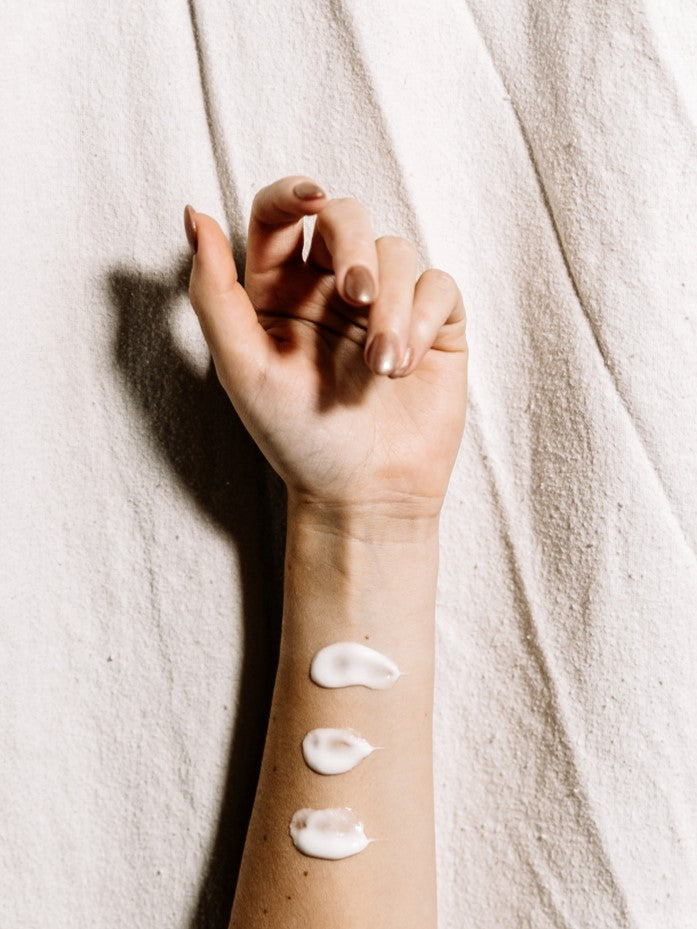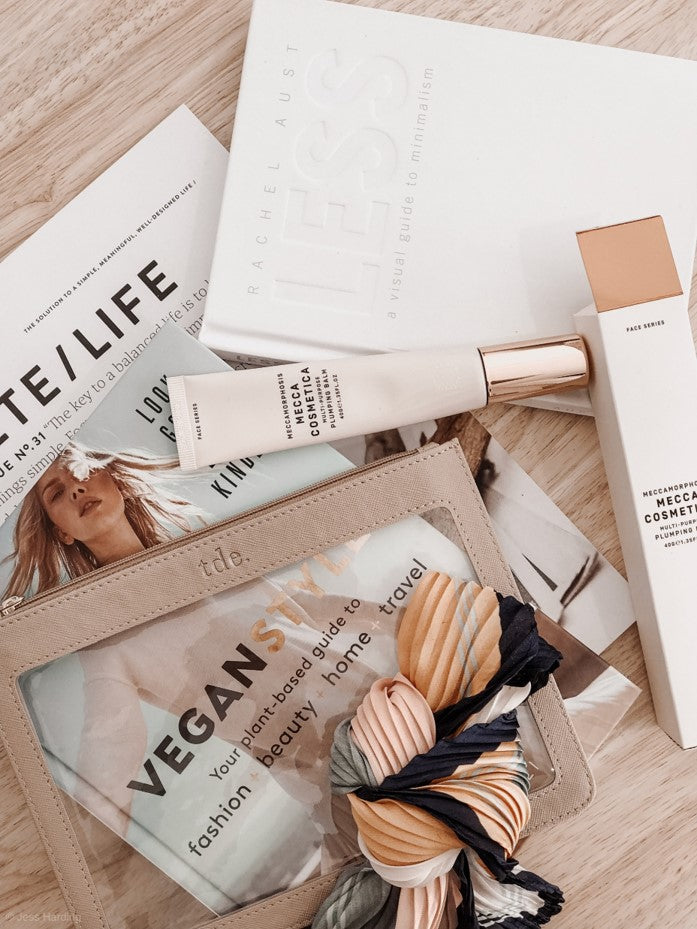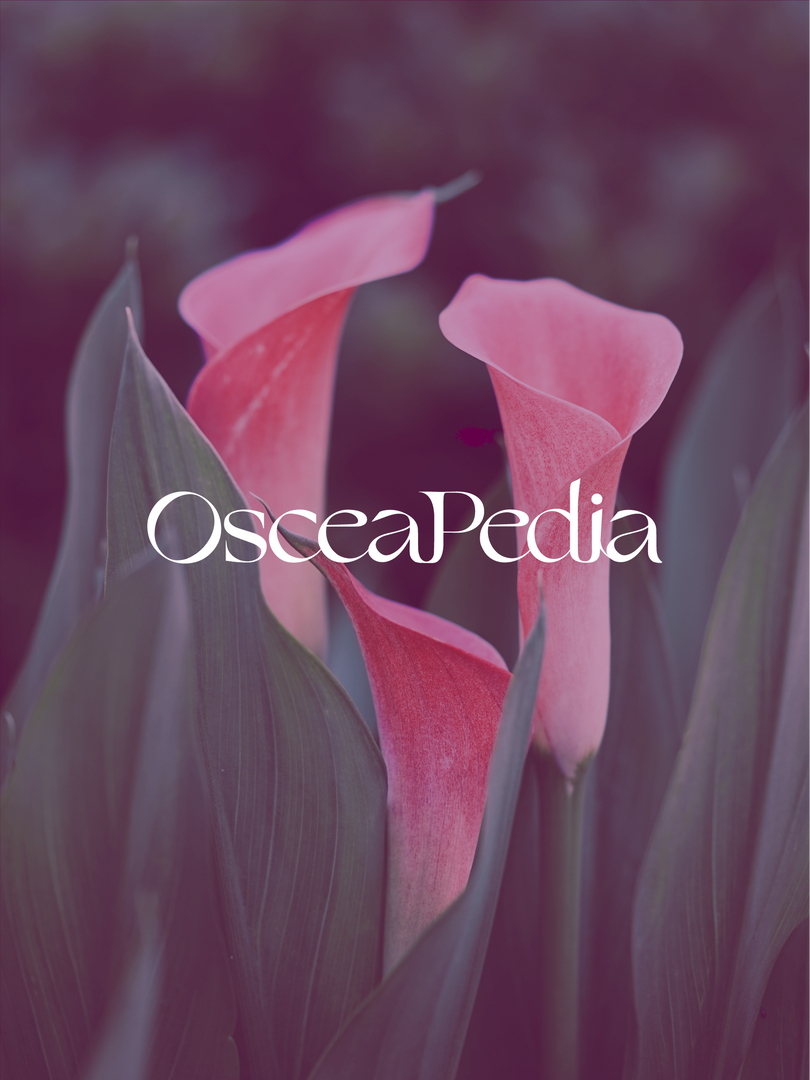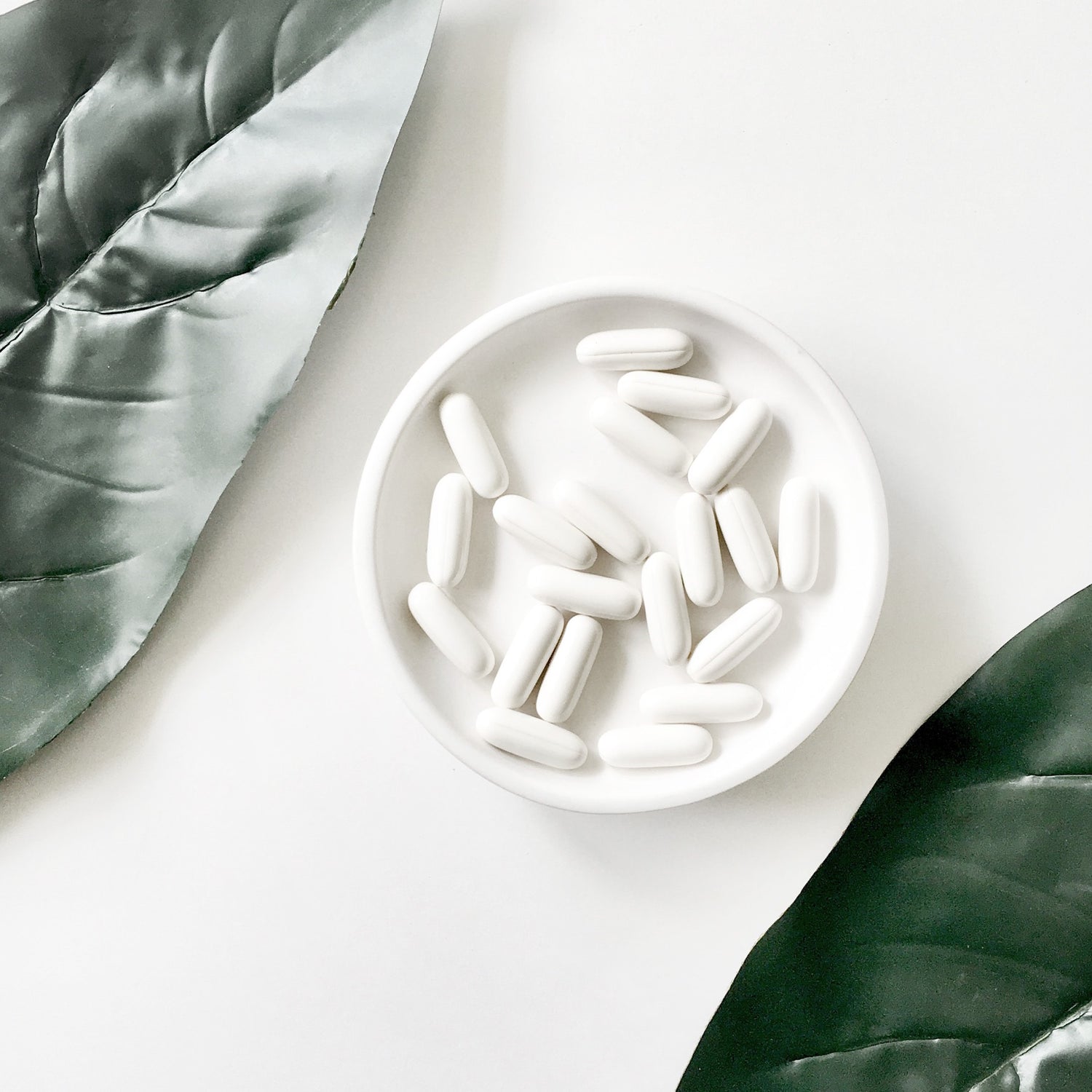Collagen has been getting a lot of buzz in the media lately for promoting healthy aging and joint and bone health. It is being mass-marketed as some kind of fountain of youth. Navigating mass marketing techniques makes it difficult to really understand collagen and find the best collagen supplement.
This article will cover:
- What is collagen?
- What are the different types of collagen?
- What are collagen supplements?
- What are the benefits of collagen supplements?
- What are the concerns with collagen supplements?
- 5 Best Collagen Supplements
What is collagen?
Collagen is the main structural protein of connective tissues such as bones, skin, cartilage, and tendons. The body’s protein content is made from at least 30% collagen. Further, collagen makes up 70% of the proteins in human skin! This makes collagen the most abundant protein in the human body. Collagen is made from four amino acids- proline, glycine, lysine, and hydroxyproline. These amino acids are then grouped together in a triple helix, forming collagen. Collagen provides elasticity and strength. It supports the health of hair, joints, and bones and keeps skin tight, structured, and firm. When we are young, we make more collagen than we break down. As we age, we begin to lose the collagen in our bodies. Collagen loss begins between the ages of 18 and 29. At age 80, collagen production can decrease to 75% of that of young adults. Collagen loss is the main culprit for age-related wrinkles and joint pain. Supplements are used to replenish some of the collagen your body has lost. These supplements are typically made of collagen peptides which are broken down elements of the longer protein chain.
What are the different types of collagen?
There are 28 different types of collagen so far identified in the human body. But 90% of all collagen in our body is types I through III, making the first three types the most important. It is necessary to note the different types of collagen since each of them has slightly different functions and benefits. Collagen supplements will typically state which types of collagen are present. It is always best to take a multi-collagen supplement to ensure you are getting all the benefits, especially those that contain types I, II, and III.
Type I:
This type of collagen is found in bones, ligaments, tendons, hair, nails, and skin and its main use is elasticity and strength. Type I makes up 85% of the collagen in our tendons. Supplements containing this type come from both bovine and marine collagen and are typically used to minimize wrinkles, improve skin elasticity and strengthen hair and nails. This type can be naturally found in beef, bone broth, and eggs.
Type II:
Type II collagen is found in cartilage and promotes joint health. Supplements typically come from chicken and beef cartilage. Cartilage deterioration causes age-related joint pain which type II supplements can help with. Consuming chicken and bone broth can also increase type II collagen levels.
Type III:
Type III is typically found alongside Type I in the skin, blood vessels, and internal organs. It helps especially with intestinal health, wound healing, gut healing, and healthy blood clotting. Deficiency in type III collagen is linked to ruptured blood vessels. This supplement typically comes from bovine.
Type IV:
This type of collagen is needed for nerve and blood vessel functions and is found in the skin. Type IV collagen forms basal lamina which provides padding for skin cells.
Type V:
Found in the eyes and placenta of expecting mothers, Type V collagen is found in and between tissues, and is known to support neonatal development, eye health and helps regulate the development of collagen fibers. The best sources for type V collagen are eggs and multi-collagen supplements. It is especially critical for expecting mothers since it makes up the home of their unborn children.
Type X:
Type X is critical for healthy joints and bones. It is essential in bone formation and can help bone fracture healing. Natural sources of type X include eggshell membranes and chicken.
What are collagen supplements?
Collagen supplements, also called collagen peptides, are broken down forms of collagen that are easier for humans to absorb. They are also referred to as hydrolyzed collagen or collagen hydrolysate. They are made by extracting collagen from the connective tissue of animals such as cows, fish, and chickens. Generally, animal agriculture is intended for meat, dairy, and eggs so the skin and other parts are treated as waste. This waste can be used to make collagen. Bovine collagen is one of the most popular forms of collagen and is extracted from cowhides, muscles, tendons, and bones. Marine collagen is also popular and is typically extracted from fish scales. Collagen supplements can be taken in powders, capsules, gummies, drinks, and other forms. Powders are typically the best form of collagen since they deliver the most potent amount. People also typically find collagen powders to be the most versatile since they can be added to food or beverages. Since collagen supplements come from animals, they are not vegetarian or vegan friendly. If you don’t consume meat, you can take a different collagen-boosting supplement that doesn’t actually contain collagen. Vegan supplements are made of different vitamins and nutrients that support your body’s natural collagen production as opposed to just ingesting collagen in a typical collagen supplement. There are currently no true vegan collagen supplements but start-ups are currently investing in research and innovation to create them.
What are the benefits of collagen supplements?
Collagen supplements could address the physiological needs posed by aging and exercise. They are intended to improve and maintain skin, joint, gastrointestinal, and bone health. The benefits of collagen supplements are still being researched, so more studies are needed to conclude any definite outcomes. Some studies have linked collagen supplements to stronger bones by increasing bone mineral density and preventing the breakdown of bones. They have also been linked to increased muscle mass and strength, skin elasticity, hydration, and decreased wrinkles. Recent studies have shown a reduction of joint pain for athletes and those with arthritis when taking collagen. Supplements could also protect cardiovascular health by giving blood vessels elasticity. Some studies have shown that collagen supplements can be helpful for gut support. This is because one of the main amino acids in collagen, L-glutamate, supports digestive health since it is a major fuel source for intestine cells. Our gut lining also uses proline and glycine, other amino acids in collagen, for energy. Supplements could help improve digestion, soothe and repair the intestinal tract and even boost metabolism. Collagen supplements are most often used to support healthy hair, skin, and nails as well as decrease wrinkles.
What are the concerns with collagen supplements?
Although all of these benefits could be potentially from collagen supplements, there’s no definite evidence that animal-based collagen supplements actually increase human collagen levels. Since collagen is trending among consumers, this could be one big mass marketing scheme. But at the same time, so many people are praising the benefits that there has to be some truth. It can’t hurt to at least try them. Something important to note is that the FDA doesn’t test collagen supplements for safety and effectiveness. This leaves safety regulation up to the manufacturer and consumer. Since collagen supplements come from animals they can be heavily contaminated with heavy metals and pesticides. Mercury has been found in marine collagen supplements and other harmful toxins have been found in bovine collagen. A lot of bovine collagen is produced from cattle ranching in the Amazon which comes with a ton of environmental issues involving deforestation. If a collagen supplement doesn’t identify its source, it is most likely from Brazil and should be avoided. Another thing to look for is grass-fed collagen. Bovine supplements can be derived from regular feedlot cattle or grass-fed farms but the most popular option is feedlot cattle hides. You should always opt for grass-fed collagen to avoid pesticides and contamination. Supplements should always be tested for mad cow disease, pesticides, and heavy metals. The supply chain should also be traceable from the farm the cows were raised, to the factory it was packaged in. Otherwise, it is impossible to tell if the sourcing is ethical. Collagen should be produced from the byproducts of the animal agriculture industry but it is often hard to tell. A lack of transparency could leave room for companies to hide unethical practices of killing animals just for collagen extraction. The US Pharmacopeia seal is a good thing to look for since it indicates that the ingredients have been verified safe and effective. Another organization that certifies that collagen product labels match the ingredients is NSF International. NSF certification is also helpful because they check for unsafe levels of contaminants of masking agents. A good way to avoid contaminants and potentially harmful labor practices are to take vegan pro-collagen blends since animal-based collagen is way more likely to have contaminants. Aside from contamination, the main concern with collagen is that it’s not clear at all that eating collagen actually increases your body’s levels of it. The molecular structure of animal-based collagen may just be too big for our bodies to absorb. Further, supplements don’t confront the root cause of collagen loss. It is important to know that collagen isn’t a magical drug as it is being marketed.
5 Best Collagen Supplements
Although there are concerns with collagen supplements, the potential benefits still make them worth giving a shot. Check out our recommendations for the best collagen supplements below.
1. Truvani Marine Collagen Powder
$44.99
Truvani Marine Collagen Powder is The Food Babe’s collagen brand. They test every ingredient to ensure high-quality real food ingredients and no chemicals or cheap additives. One dose of Truvani powder has 11g of protein. It is easily dissolved in hot or cold liquid and has almost no flavor at all. Simply mix the powder into your coffee, smoothie, or food. This marine collagen comes from the skin of wild-caught fish and Truvani makes sure to be transparent about where their wild fish are from while ensuring no fisheries are involved. Fish skin often goes to waste so this is a sustainable source. Most other brands only contain one or two types of collagen but with this formula, you get types I, II, and III. Truvani collagen powder is non-GMO, gluten-free, soy-free, and dairy-free. Truvani is a great option for a marine multi-collagen powder.
2. Indigo Marine Collagen Powder
$35
Another great marine multi-collagen powder is Indigo. Indigo powder is a complete source of collagen, containing types I, II, III, and IV. This hydrolyzed fish collagen is free of sugar, additives, preservatives, colors, and fillers. It is also gluten-free, non-GMO, kosher certified, paleo-friendly, and gluten-free. Each scoop of Indigo powder contains 10g of collagen peptides. Indigo offers collagen powder in a variety of natural flavors including plain, dragon fruit, blueberry acai, and more. They source their marine collagen from sustainable fishermen in Canada and Europe. Similar to Truvani, they use fish skins from wild fish that would normally be discarded. Another great aspect of Indigo products is that their packaging and bottling are made from 100% recycled materials.
3. Antler Farms New Zealand Collagen Powder
$39.99
If you are looking for a grass-fed bovine powder, Antler Farms is a good option. They are extremely transparent about sourcing, processes, and materials so you can be confident that their collagen is ethically produced. Their bovine is extracted from the hides of 100% grass-fed, pasture-raised New Zealand cows. This is a clean source of cows that aren't injected with hormones or treated with antibiotics. No additives, colors, fillers, added flavors, hormones, antibiotics, chemicals, or GMOs are involved in their production. They conduct several physical, chemical, and bacterial tests to ensure there are no possible contaminants. Although Antler Farms is a New Zealand-based producer, they have a distribution center in the USA. Their formula is 97% pure collagen protein, giving this powder a significantly higher protein content. Antler Farms dissolves quickly and tastelessly- you won’t even notice it’s there!
4. Live Conscious Beyond Collagen Capsules
$29.99
If you would rather take a capsule than powder, Live Conscious Beyond is the best brand. Most people don’t prefer to take capsules since they are usually recommended to be taken 3-5 times a day! But if that isn’t an issue for you, then they can definitely be a convenient and easy option. Live Conscious is no different- they recommend taking 1 capsule 3 times a day. What’s great about this capsule is that it is a potent mix of both a multi-collagen supplement and collagen-boosting nutrients. Their formula contains collagen types I, II, III, V, and X as well as biotin and Vitamin C. They source their types I and III from grass-fed bovine, type II from the chicken sternum, and types I, V, and X from eggshell membranes. These capsules use only high-quality sources and are certified 100% non-GMO. They are also free from harmful fillers, additives, soy, dairy, shellfish, gluten, and preservatives. This clean formula provides 1300 mg of collagen per serving. Live Conscious Beyond Collagen Capsules are the best multi-collagen capsule supplement on the market.
5. Ora Organic Aloe Gorgeous Vegan Collagen Booster
$34.99
Ora Organic Aloe Vegan Collagen Booster is a great option for anyone who prefers to increase their collagen from a non-animal source. This collagen booster contains aloe, vera, organic pea protein, and vitamin C and E. Pear protein is high in lysine, an amino acid essential in the creation of collagen. Their vitamin E is derived from sunflowers and helps with skin protection and anti-aging. Vitamin C is essential to collagen production and Ora Organic sources it naturally from acerola cherries. Ora Organic also contains polysaccharides which have been shown to support collagen production. Although this powder doesn’t contain actual collagen peptides, it has plenty of other collagen-boosting ingredients that provide the same benefits.
Omega 3 Fatty Acids
Omega 3's are another important supplement to take to improve skin quality and moisture retention. Örlö makes a vegan, algae omega-3 supplement to support your brain, heart, joints and immune system. They also make a Prenatal DHA. Their unique polar omega-3 structure provides 3x the absorption of other algae or fish oils and is grown using 100% renewable resources with zero hexanes, zero pesticides, and zero environmental toxins. Achieve homeostasis in the body with the world’s most sustainable algae omega supplement.
Sources:
- https://www.verywellhealth.com/best-collagen-supplements-4587056
- https://newsnetwork.mayoclinic.org/discussion/mayo-clinic-q-and-a-collagen-and-biotin-supplements/
- https://blog.nasm.org/do-collagen-supplements-work
- https://nakednutrition.com/blogs/protein/difference-between-type-1-2-3-collagen
- https://cbsupplements.com/cc/what-are-5-types-of-collagen/
- https://naturalforce.com/blogs/nutrition/collagen-differences-types-1-2-3
- https://www.algaecal.com/expert-insights/vegetarians-guide-protein-collagen-healthy-bones/
- https://www.healthline.com/health/food-nutrition/vegan-collagen#where-to-find-and-alternatives
- https://www.joshboughton.com/post/collagen-making-the-ethical-choice











